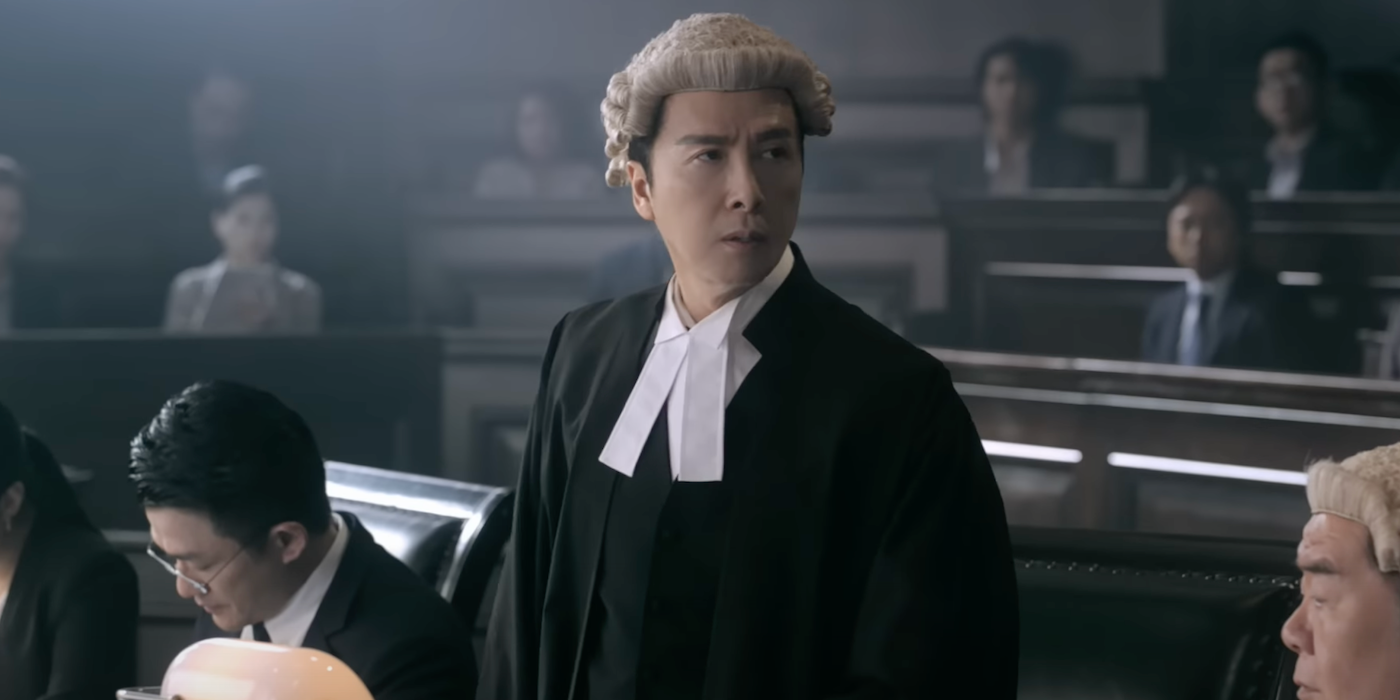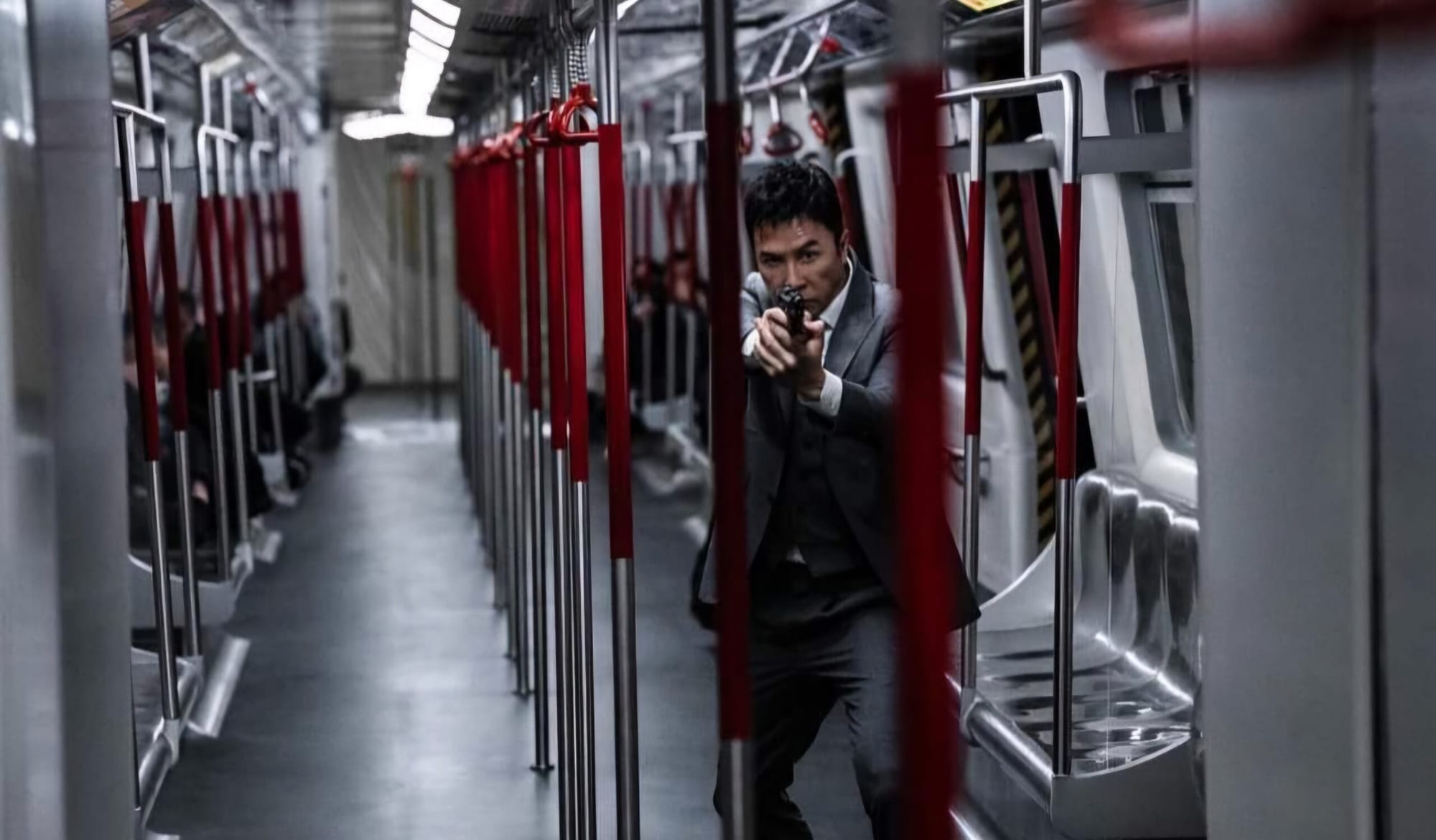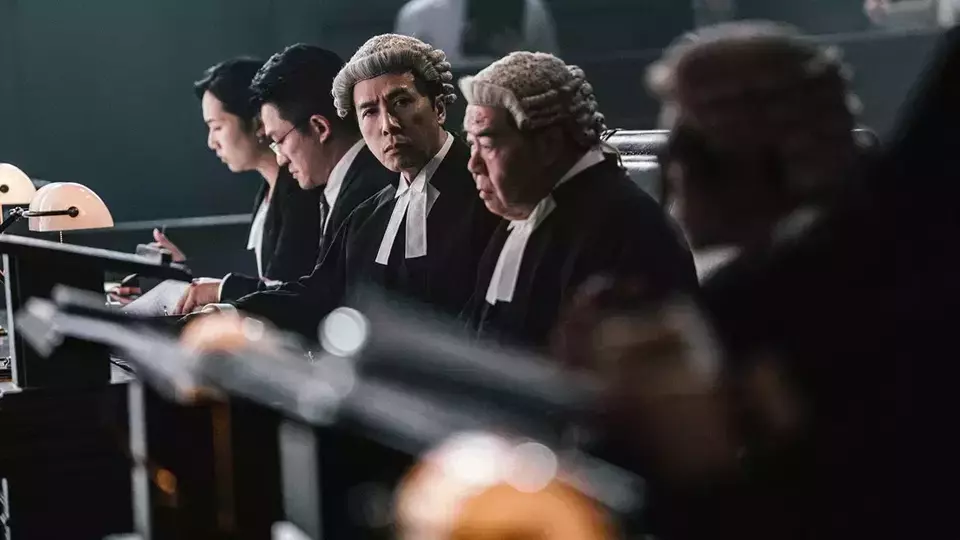The Prosecutor (Donnie Yen, 2024)

A Donnie Yen courtroom drama may seem like an ominous way to kick off the year in film 2025, but this is the world we’ve made for ourselves and we must go to where the movies are. Probably inspired by recent films like A Guilty Conscience and The Sparring Partner, which combined courtroom theatrics with political indictments just vague enough to pass through the Mainland censors now responsible for monitoring Hong Kong cinema to rousing box office success, Donnie dons the white wig and black robes of the eponymous prosecutor, charged with undoing injustice and punishing the real bad guys. Where those earlier films identified the culprits as systemic inadequacies in the legal system or an economic system that allows such an extreme concentration of wealth that it can pervert said system for its own benefit (and conversely punish those lacking the resources to hire a Michael Wong to serve as a slick fixer), for Donnie the issue is much simpler: the bad guys are murderous drug dealers and the good guys are the cops hunting after them and the lawyers prosecuting them. Or at least they would be the good guys if they weren’t so tired after a lifetime of hunting and prosecuting (the implied solution to society’s ills thus being, of course, the hiring of ever more cops and lawyers). How this plays at home, in an SAR still dealing with the legal fallout of the police crackdown on pro-democracy protestors (an event Yen himself as characterized as a riot), remains to be seen. The early box office returns (the film was released a month ago in Hong Kong) seem to be reasonably successful, though certainly not the kind of smash status that A Guilty Conscience achieved.
How the films plays outside of Hong Kong also remains to be seen. The movie hasn’t yet been released on the Mainland, though it does appear to have been at least somewhat tailored to that audience: there are a handful of weird title cards during the courtroom scenes that seem to be designed to explain how Hong Kong courts work (like the defendant entering a plea or the judge giving a sentence) that only really make sense if your intended audience comes from outside Hong Kong (or possibly has never seen a courtroom before, either in real life or on-screen). And its North American release comes this week thanks to the fine people at WellGo USA. Over here at least, the film will be received as an action film, not as a political statement, and almost certainly that’s the better way of looking at it. As a general rule, we’re simply better off not knowing the particulars of our action heroes’ political beliefs. <nodding in Scott Adkins’s general direction while rolling my eyes at Jackie Chan>

And while The Prosecutor is a courtroom drama first and foremost, it is still most definitely an action movie as well. It is not, as one may have hoped, a riff on Corey Yuen’s classic Righting Wrongs, where Yuen Biao played a prosecutor who gets so fed up with the system that he takes the law into his own murderous hands, bringing Cynthia Rothrock and Melvin Wong along with him for some of the craziest fights scenes of the 80s. Donnie is simply too old for that kind of thing, and this is the first one of his movies where he really seems to be acknowledging that fact. He still runs and jumps around, with flying kicks and pounding fists, and as always his stunt team does terrific work (led this time by choreographer Takahito Ouichi, who appears to be a protege of former Yen collaborator Tanigaki Kenji (who did his best work last year for Soi Cheang in Twilight of the Warriors: Walled In)), but Yen the director cheats his way around Yen the star in ways he’s never really done before.
The film opens with a tactical combat scenario as a squad of cops invade a lair of bad guys. Many stunt people run around hitting and shooting each other, and Donnie too, the lead cop, gets his shots in. But halfway through the scene, Yen shifts to POV shots, framed just like a first-person shooter video game (complete with the hand holding a gun stretching out of the lower right hand side of the frame). The advantage to this approach, aside from just looking kind of neat, is that if we’re seeing the action from Yen’s point-of-view, then we don’t have to watch a 62 year old man try to keep up with an army of highly capable stuntmen in the 20s. Similarly, a big group fight later in the film, as Donnie is beset by a seemingly unending army of stuntmen in a rooftop restaurant, contrives ways to hide the star from the action: fire extinguishers set off as smoke screens, opaque little dining domes the principals fall into, only for Donnie to emerge after (presumably) beating up the younger men, drone shots that pull away from the fight all together, leaving the fighters as obscure dots on a high rise in the Hong Kong night sky.
That’s not to say the action isn’t good though. It is, it’s just better when Donnie isn’t the primary focus. There’s a big fight in the middle of the movie led by MC Cheung Tin-fu that’s impressive: as a pop star I assume Cheung has a dancing background, and thus is a natural for move-fight choreography. This is the first I’ve seen him, but I’d like to see more. That fight does have Donnie come in at the end to rescue Cheung, and he acquits himself well there. As he does in the movie’s one big car chase through a parking garage (Bruce Law of course is credited with helping choreograph it) and in the film’s extended final fight in a subway car against Yu Kang as the drug dealing gang’s top assassin. This fight is most like the Donnie of his peak early 2000s era: brutal, fast, and hard-hitting, with our hero overcoming the odds against a much larger and significantly more tattooed foe.

As for the case that this courtroom drama is about, well it doesn’t make a whole lot of sense. A young man is tricked into taking a plea deal by his lawyers, who turn out to be working for a couple of gangs of drug dealers. Donnie, a cop who has made a late-career job switch into being an attorney, is the only prosecutor who cares enough about the kid to want to see justice done, rather than simply pad the office’s conviction rate. His dogged pursuit of Truth ultimately unravels the whole conspiracy, while inspiring his colleagues to rediscover their love of The Law. It’s mostly absurd, but Yen the director is aided immensely by a bevy of terrific supporting performances from Hong Kong veterans like Kent Cheng (a fellow attorney, the dictionary definition of “hangdog”), Francis Ng (still in his boring prestige mode, rather than his true calling as his generation’s weirdest actor, but effective nonetheless), Julian Cheung (an actor I don’t think I’ve ever really seen before, though he’s been a movie and TV star for 30 years, he’s terrific in the first half of the movie, underplaying his sinister manipulations as the primary, though as his character’s position unravels in the second half he becomes less interestingly manic), and the always welcome Michael Hui (as the wealthy and supercilious judge in charge). The film was produced by our old nemesis, Raymond Wong Bak-ming, co-founder of Cinema City, patron and star of early Johnnie To movies, producer of much of Donnie Yen’s 21st century work, including all the Ip Man films. Raymond’s son Edward Wong wrote the script, along with Cheung Chun-ho, Wong’s partner on such recent films as Crypto Storm, Love Suddenly and Breakout Brothers 2. I have not seen any of those movies and I have no intention of doing so any time soon.
